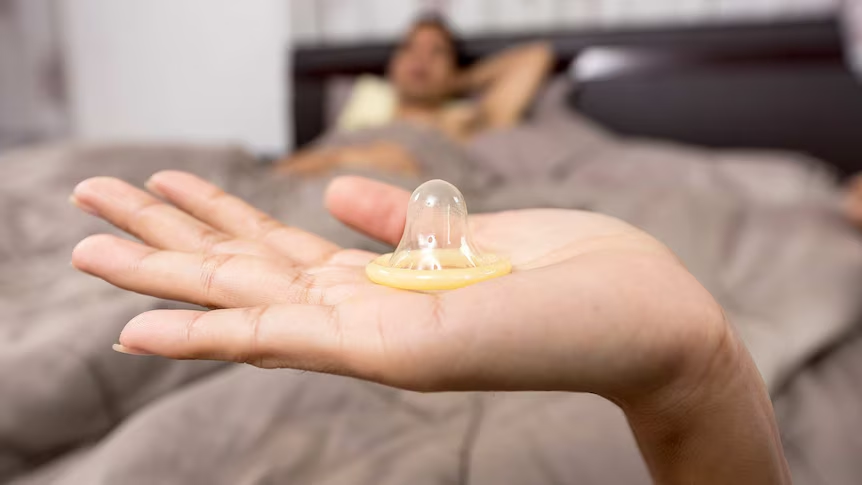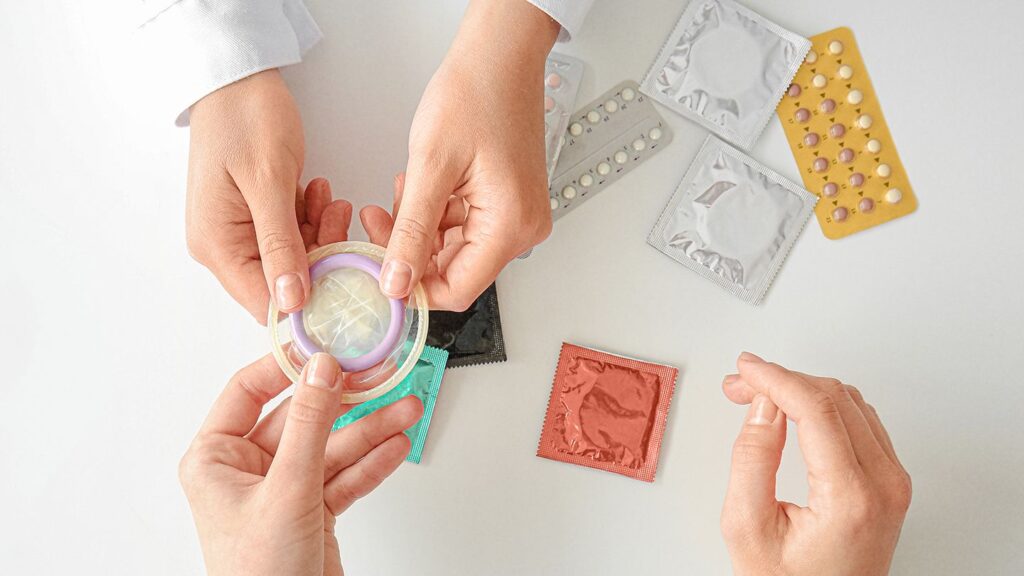When it comes to preventing pregnancy, the choices can feel overwhelming. From tracking your cycle to taking daily pills, many people find themselves asking: Which method is truly reliable? Natural methods—like fertility awareness or the withdrawal method—offer a hormone-free, low-cost approach that appeals to those wanting a more “natural” lifestyle. On the other hand, hormonal options—such as birth control pills, implants, and injections—promise high effectiveness backed by science, but come with their own set of side effects and responsibilities.
Recommended: What’s the Best Birth Control Method with the Least Side Effects?
In this blog, we’ll break down how each method works, compare their reliability, and explore which option might be right for your body, your beliefs, and your lifestyle.
Understanding Natural Methods
Natural methods of pregnancy prevention, often referred to as fertility awareness-based methods, rely on understanding and tracking the body’s natural signals to determine when a woman is most fertile. Unlike hormonal birth control, these methods involve no medications, devices, or synthetic hormones. Instead, they focus on observing signs such as basal body temperature, changes in cervical mucus, and menstrual cycle patterns to avoid unprotected sex during fertile windows.

One of the most common approaches is the fertility awareness method, where individuals monitor their cycle closely to pinpoint ovulation. Others may use the withdrawal method, in which the male partner pulls out before ejaculation to prevent sperm from entering the vagina. Some rely on the calendar method, which involves tracking menstrual cycles over several months to estimate fertile days. Additionally, for breastfeeding mothers, the lactational amenorrhea method can offer temporary protection against pregnancy, typically effective during the first six months postpartum when breastfeeding is exclusive and consistent.
Recommended: Creighton Method of Natural Family Planning
While these methods can be appealing due to their natural and hormone-free nature, they require a high level of discipline, consistency, and body awareness. Their effectiveness varies, with typical-use failure rates being significantly higher than most hormonal options. Factors like irregular cycles, stress, illness, or changes in routine can also affect their reliability. Still, for those committed to understanding their bodies and maintaining a strict routine, natural methods can be an empowering and affordable choice.
Understanding Hormonal Methods
Hormonal methods of pregnancy prevention are among the most commonly used and highly effective forms of birth control available today. These methods work primarily by altering the body’s natural hormone levels to prevent ovulation, thicken cervical mucus to block sperm, and in some cases, thin the uterine lining to prevent implantation. By interfering with the body’s reproductive cycle, hormonal contraceptives significantly reduce the chance of pregnancy when used correctly.
There are several types of hormonal birth control, including daily oral contraceptive pills, weekly patches, monthly vaginal rings, three-month injections, subdermal implants that last for several years, and hormonal intrauterine devices (IUDs) that can remain effective for up to five years or more. Each method delivers hormones—usually a combination of estrogen and progestin, or progestin alone—in different ways, allowing individuals to choose what best fits their lifestyle and health needs.
Recommended: Can I Get Pregnant on Birth Control If I Miss One Pill?
One of the biggest advantages of hormonal birth control is its high level of effectiveness, especially with consistent use. For example, the pill, patch, and ring all have typical-use failure rates of about 7%, while implants and hormonal IUDs have failure rates of less than 1%. Additionally, some women use hormonal methods not only to prevent pregnancy but also to regulate menstrual cycles, reduce acne, or manage conditions like endometriosis.
However, hormonal contraceptives are not without drawbacks. Some users may experience side effects such as mood changes, nausea, breast tenderness, weight fluctuations, or headaches. More rarely, there can be more serious risks, such as blood clots, especially in smokers or women over 35. Despite these concerns, for many people, the convenience and effectiveness of hormonal methods make them a reliable and empowering choice for reproductive control.
Comparing Effectiveness Rates
How well a birth control method works often depends on how it’s used. Some methods are more forgiving of human error, while others demand daily attention and discipline. Here’s how natural and hormonal methods stack up in terms of effectiveness:
Natural Methods
These rely on tracking your cycle or timing withdrawal correctly. The numbers show a big difference between perfect use (used exactly as recommended) and typical use (real-life use).
Recommended: What Are Common Side Effects People Experience When Switching Between Combined Birth Control Pill and Mini Pill?
- Fertility Awareness Methods:
- Perfect use: up to 95% effective
- Typical use: around 76% effective
- Withdrawal (Pull-Out Method):
- Perfect use: about 96% effective
- Typical use: around 80% effective
- Calendar Method:
- Less reliable, especially with irregular cycles
- Typical use effectiveness can drop below 70%
Natural methods require consistency, attention to detail, and excellent timing. They’re most effective for people with very regular cycles and strong self-discipline.
Hormonal Methods
These work by controlling your body’s reproductive hormones and don’t require you to track ovulation or fertile windows.

- Birth Control Pills:
- Perfect use: over 99% effective
- Typical use: around 93% effective
- Birth Control Patch or Vaginal Ring:
- Perfect use: over 99% effective
- Typical use: around 91% effective
- Hormonal Injections (e.g., Depo shot):
- Around 94% effective with typical use
- Hormonal Implants & IUDs:
- Over 99% effective
- Very low chance of user error (lasts 3–5+ years)
Hormonal methods are more reliable overall, especially the long-acting ones, because they don’t depend on daily routines or partner cooperation.
Risks, Side Effects & Benefits
Every pregnancy prevention method comes with its own set of risks and benefits. Understanding both natural and hormonal options can help you make a decision that fits your health, comfort, and lifestyle.
Natural Methods
Benefits:
- No artificial hormones or chemicals in the body
- Completely reversible with no long-term effects on fertility
- Cost-effective or completely free
- Encourages body awareness and partner communication
Recommended: Can Birth Control Cause Mood Swings or Depression?
Risks & Side Effects:
- High chance of unintended pregnancy with typical use
- Requires regular tracking, patience, and strong commitment
- Less reliable during illness, stress, or irregular cycles
- No protection against sexually transmitted infections (STIs)
Natural methods are best for people who are very disciplined, have regular cycles, or want to avoid hormones for religious, health, or personal reasons.
Hormonal Methods
Benefits:
- Highly effective in preventing pregnancy
- Regulates menstrual cycles and can reduce painful periods
- May improve acne or reduce PMS symptoms
- Long-acting options offer years of protection with little effort
Risks & Side Effects:
- Possible side effects include nausea, headaches, mood swings, and weight changes
- Rare but serious risks: blood clots, high blood pressure, especially in smokers or women over 35
- Requires a prescription or visit to a clinic for most types
- May take time for fertility to return after stopping some hormonal methods
Hormonal birth control is a powerful option for those who want reliable protection, cycle regulation, and convenience—but it’s important to find a method that suits your body and talk to a healthcare provider about possible risks.
Recommended: Can I Get Pregnant on Birth Control If I Miss One Pill?
Who Should Use What?
Deciding on the right method of pregnancy prevention is deeply personal and depends on factors like your body, lifestyle, health, and values. Natural methods may be ideal for individuals who have regular menstrual cycles and feel confident tracking ovulation signs each day. If you prefer a hormone-free approach, have a supportive partner, and are disciplined enough to follow your cycle closely, natural methods can offer a safe and empowering alternative. They’re especially suitable for those who are seeking low-cost or faith-aligned options and are willing to accept the trade-off of lower effectiveness with typical use.

On the other hand, hormonal methods may be a better fit if you’re looking for more reliable and consistent protection. These options are particularly helpful for people with irregular periods, painful cramps, or hormonal conditions like acne or endometriosis. If you’re comfortable with the idea of synthetic hormones and would rather not track your cycle daily, hormonal methods like pills, patches, injections, or long-term solutions like implants and IUDs offer convenience and peace of mind. They’re also a great choice for those with busy or unpredictable routines.
Recommended: How to Choose a Birth Control Method Without Side Effects
For teens or first-time users, starting with accessible methods like the pill or patch—especially under the guidance of a healthcare provider—can provide a sense of control and safety. Combining methods, such as using condoms along with cycle tracking or hormonal options, is also a smart strategy. It offers added protection against both pregnancy and sexually transmitted infections, especially during high-risk days.
Ultimately, the right method is the one you can use consistently, feel good about, and trust to protect your health and future. There’s no “one-size-fits-all” answer—just the one that fits you best.
Conclusion
When it comes to preventing pregnancy, both natural and hormonal methods offer their own strengths and challenges. Natural methods appeal to those who prefer a hormone-free lifestyle and are comfortable with tracking their fertility, while hormonal options provide higher reliability and ease of use, especially for those with busy or unpredictable schedules.
There’s no universal “best” method—only the one that works best for you. Your body, health history, lifestyle, and personal values all play an important role in making the right choice. Some people may even find that combining methods offers the balance of safety and peace of mind they need.
What matters most is being informed, honest with yourself about what you can manage consistently, and open to consulting a healthcare provider when necessary. With the right knowledge and support, you can choose a method that empowers you to take control of your reproductive health with confidence.
